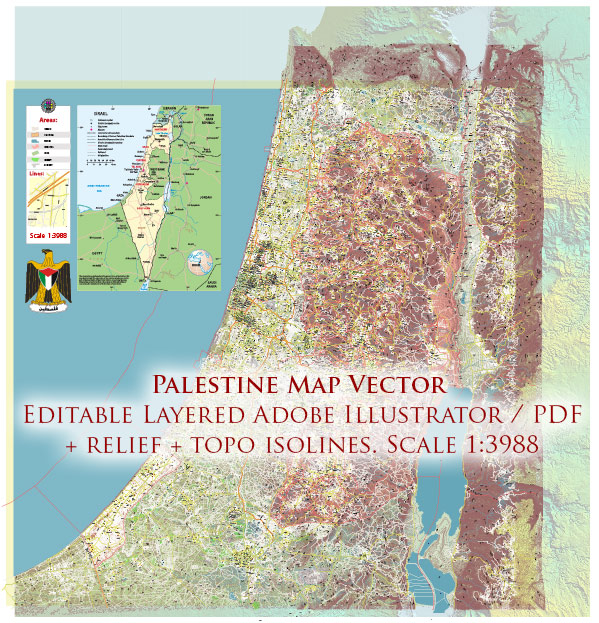The political history of Palestine is complex and marked by a long-standing and deeply rooted conflict with Israel. The region has a rich history dating back thousands of years, but for the sake of brevity, I will focus on the more recent political developments in the 20th and 21st centuries. It’s important to note that this is a highly contentious and sensitive topic, and my response aims to provide an overview of key events and not take a position on the ongoing conflict.
- Ottoman Rule: Prior to World War I, Palestine was part of the Ottoman Empire for centuries. The empire’s rule ended with its defeat in World War I.
- British Mandate (1920-1948): After World War I, the League of Nations granted Britain a mandate to govern Palestine. During this period, tensions between Jewish immigrants and the Arab population escalated.
- United Nations Partition Plan (1947): The UN proposed a partition plan to divide Palestine into separate Jewish and Arab states, with an international administration for Jerusalem. The plan was accepted by the Jewish leadership but rejected by the Arab states.
- Israeli Declaration of Independence (1948): On May 14, 1948, David Ben-Gurion, Israel’s first Prime Minister, declared the establishment of the State of Israel. This declaration led to the first Arab-Israeli war, known as the 1948 Arab-Israeli War or the War of Independence.
- Palestinian Displacement (1948): As a result of the war, hundreds of thousands of Palestinian Arabs were displaced from their homes, leading to the Palestinian refugee crisis.
- Post-1948 Conflicts: The Arab-Israeli conflict continued with wars in 1956, 1967 (Six-Day War), and 1973 (Yom Kippur War), and conflicts between Israel and Palestinian groups.
- Oslo Accords (1993): The Oslo Accords were a series of agreements between Israel and the Palestine Liberation Organization (PLO) that aimed to establish a framework for Palestinian self-government in the West Bank and Gaza Strip.
- Second Intifada (2000-2005): A period of intensified violence and conflict marked by suicide bombings, Israeli military operations, and ongoing tensions.
- Gaza Strip Withdrawal (2005): Israel unilaterally withdrew from the Gaza Strip, but the area remains a source of tension and conflict.
- Hamas Control in Gaza (2007): In 2007, Hamas, an Islamist group, took control of the Gaza Strip, while the West Bank came under the control of the Palestinian Authority.
- Peace Process and Stalled Negotiations: Ongoing efforts to reach a peaceful resolution to the conflict, including negotiations, have faced significant obstacles and setbacks, with issues such as borders, refugees, and the status of Jerusalem remaining contentious.
- Recognition of Palestinian Statehood: Over the years, a growing number of countries and international organizations have recognized the State of Palestine, although it still does not have full sovereignty over its territories.
The conflict in Palestine continues to be a deeply divisive and complex issue with no easy solutions. It has resulted in ongoing violence, diplomatic efforts, and numerous peace initiatives, but a comprehensive resolution remains elusive. The situation is subject to ongoing developments and is deeply sensitive to many people around the world.


 Author: Kirill Shrayber, Ph.D. FRGS
Author: Kirill Shrayber, Ph.D. FRGS